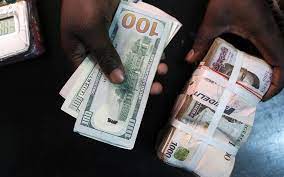The House of Representatives has been in the forefront of agitation for the extension of the deadline fixed by the Central Bank of Nigeria for the old to new currency notes swap. JOSHUA EGBODO reviews the issues involved
The sudden announcement
It was a mixture of excitement, anxiety and shock across the country, when on October 26, 2022, Governor of the Central Bank of Nigeria (CBN), Mr. Godwin Emefiele announced that redesigned naira notes would be introduced to replace the existing N200, N500, and N1, 000 notes. He followed with information that Nigerians have until January 30th, 2023 to deposit their old notes, as they will cease to be legal tenders from January 31, 2023.
While speculations were up on the workability of the fixed deadline, the CBN issued a reminder, insisting that the January 31, 2023 deadline remained sacrosanct. It therefore told Nigerians to deposit the affected old denominations in their possession with their respective banks before the fixed deadline.
“The old series of N200, N500 and N1, 000 notes will cease to be legal tender by January 31, 2023. This is a reminder to the general public. You are advised to return them to your banks before the deadline”, the apex bank stated in the reminder communication.
Concerns
With the instance, and the deadline fast approaching with a lot of challenges in accessing the new bank notes, concerns and pressure began to mount in calls for extension of the deadline from several quarters. Nigeria’s apex legislature was not left out, as both House of the National Assembly made moves to intervene.
Reps move in
As the pressure continued on the CBN to extend the deadline, the House of Representatives on Tuesday January 24, 2023 passed a resolution to that effect. It also constituted an Ad hoc committee under the chairmanship of its Majority Leader, Alhassan Ado Doguwa to engage all the money deposit banks in Nigeria, and management team of the CBN with a view to getting a clearer picture of the challenges being faced by citizens in accessing the new notes, and a possible extension of the deadline.
Raising concerns on the expected negative impact on the citizens, as the deadline drew closer, a member of the House, Sada Soli in a motion presented under matters of urgent public importance, demanded an extension of not less than six for the process to be concluded, insisting that it was time the House urgently intervene to avert a possible economic chaos, as Nigerians would be forced into stampede and desperate moves to beat the deadline.
While agreeing that the move towards cashless economy was in tandem with global best practices, the lawmaker argued that “for such a policy to be successful, it should not be overbearing on the people and the economy”, adding that “the financial institutions in Nigeria lack the infrastructure to handle a sudden increase in customer base as well as adequate employees to handle any challenges that could arise in the process of implementing the cashless policy within the limited time given by the CBN”.
Another member, Ahmed Jaha while speaking in support of the motion cited the conflicting argument between the commercial banks and the CBN on enough availability or otherwise of the redesigned notes as a good reason for the House’s intervention.
In his intervention, Speaker Femi Gbajabiamila posited that it was important for both management of the CBN, as well as Managing Directors of the money deposit banks to meet with the committee, where clarifications can be made on the status of the redesigned naira notes, as he announced membership of the panel.
Adamant CBN boss
With several calls all seeking an extension, the CBN Governor appeared very adamant. For instance, last Wednesday when the committee was expecting his team, a terse communication through a liaison officer of the apex bank was sent to inform the panel that the invitation for the meeting was received late, and so could not be acted on, forcing the committee to adjourn the meeting after hours of waiting.
Arrest threat
On Thursday last week, when it was apparent through the body language of the CBN that no member of its management team may be appearing before the committee at the rescheduled meeting, Speaker of the House of Reprsentatives, Femi Gbajabiamila threatened to issue a warrant of arrest against Governor of the bank, Mr. Godwin Emefiele for failing to honour the House’s invitation.
Speaker Gbajabiamila after listening to the briefing of the committee by Doguwa on the failure of the CBN to appear before the panel said “This is unacceptable.
“The Resolution of the House was predicated on information showing that the rollout of the redesigned naira notes has been an unmitigated failure. This failure has real and dire consequences on the ability of Nigerians to conduct business across the country. The refusal by the CBN to heed the invitation by the House of Representatives is evidence of a blatant disregard for the well-being of the Nigerian people who are their customers. It is also an insult to the authority and prerogatives of the people’s parliament.
“Therefore, I will, pursuant to the authority conferred by Section 89 (1)(d) of the Constitution of the Federal Republic of Nigeria and Order 19 (2)(1) of the Standing Orders of the House of Representatives, not hestitat to issue a warrant to the Inspector General of the Nigeria Police Force to compel the attendance of the CBN or Managing Directors who fail, refuse or neglect to respond to the summons by the House of Representatives.
“The House of Representatives recognises the Central Bank of Nigeria’s (CBN) authority to determine the country’s legal tender and to recall currency with reasonable notice, subject to the approval of the President. The House is also aware that Section 20 (3) Central Bank of Nigeria (CBN) Act mandates the CBN to redeem the face value of the recalled currency upon demand, even after the expiration of the notice of recall. Notwithstanding the deadline imposed by the Central Bank of Nigeria(CBN), this House will see to it that this provision of the law is honoured in full”.
Banks explain challenges
However, representatives of many of the commercial banks who made appearance before the committee were unanimous on the issue of insufficient supply of the redesigned notes by the CBN. The representatives also disclosed that they were only allowed by CBN directive, to distribute the redesigned notes of N200, N500 and N1,000 through their respective Automated Teller Machines (ATMs), and no across the counter withdrawals.
The banks also explained to the committee that only a fraction of the of the value of the old notes they collect and deposited with the CBN was given them in the new notes. For instance, Mohammed Abdul of Lotus Bank noted that “we have been receiving the new notes, however, in the last few weeks, it has been insufficient. We’re getting an average of N40 million weekly, and that’s insufficient, while representative of the Guarantee Trust Bak disclosed that in its Abuja operational area, the bank got about 60 percent of its deposit, noting that the figures vary from city to city.
Also, Mr Femi Bamigboye of Sun Trust Bank said the bank gets an average of N100 million worth of the new notes weekly, which represent about 80 percent of what it deposited, while Shehu Aliyu of the First Bank was not handy with the figures, and was given 24 hours to furnish the committee secretariat with the details. Other banks represented at the meeting were Ecobank, Wema, Fidelity, Heritage, Unity Bank, UBA, Sterling Bank and Jaiz Bank, all with similar stories.
Bearing the brunt
Analysts opined that the burden of the entire saga was mainly on the common Nigerians on the streets. At some POS agents destinations, service charges tripled for the new notes. Worse was were cases where majority of the banks have bad networks. A lot of people do not have the new notes to spend on essential commodities and services, and those with the old notes being turned down on transactions.
The unpalatable experiences threw up more public outcry, occasioned by mounting anxiety on how this week will begin, having just Monday as the only day for possible depositing of the old notes with banks. Many expressed fears of some possible chaotic situation across bank branches in Nigeria.
A deadline extension
As tension continue across the nation with no certainty of what the day ahead holds, the CBN on Sunday afternoon announced an extension of the deadline to February 10,2023, a day many still consider yet too short.
Reps committee kicks
The Doguwa-led committee, like many other Nigerians objected to the announced extension, as it had earlier after the meeting with the bank’s insisted that actors involved must act in accordance with the law and due process. It said the acceptable extension should not be less than six months.
“The 10-day extension for the exchange of the old naira notes is not the solution: We as a legislative committee with a constitutional mandate of the house, would only accept clear compliance with section 20 sub 3, 4, and 5 of the CBN act and nothing more.
“Nigeria as a developing economy and a nascent democracy must respect the principle of the rule of law. And the House would go ahead to sign arrest warrant to compel the CBN Governor to appear before the Adhoc committee”, Doguwa said in a statement he personally signed and made available to journalists on Sunday.
Describing the extension as a mere political gimmick to further deceive Nigerians and worsen their economic and social livelihood, Doguwa said the CBN governor must appear before or stand the risk of being arrested on the strength of legislative writs signed by Hon. Speaker on Monday, adding that the policy is capable of frustrating the forthcoming general elections.
“Security agencies and their operations especially at the states level are generally funded through cash advances and direct table payments of allowances to operatives during elections,” he stated.
What fate for the arrest warrant?
Nigerians are waiting earnestly to see outcome of the threat to issue arrest warrant against Emefiele. ….
In all of this, majority of Nigerians are those suffering from the unfortunate grandstanding of two institutions of the federal government on a policy that should in real sense be of benefit to all, if well planned and executed.




